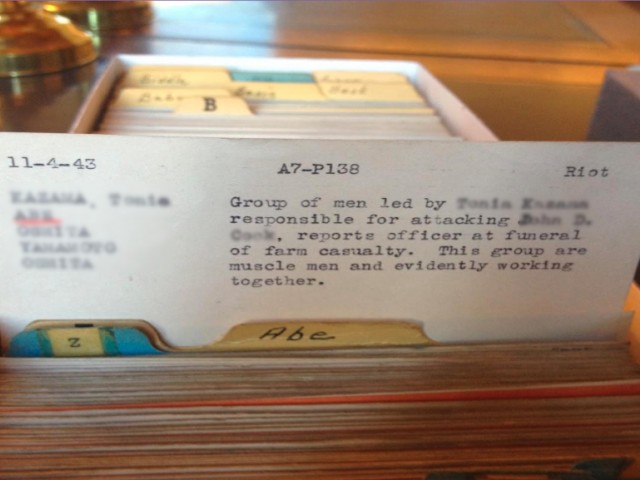
We describe computational treatments of archival collections through a case study of World War II Japanese-American Incarceration Camps. Camp staff and police officers compiled so-called "internal security" reports relating to alleged cases of "disorderly conduct, assault, theft, loss of property, and accidents" in the camps, and an index to these reports comprising over 25,000 index cards to the reports. The sheer size of these collections is pushing archivists and researchers to consider new forms of processing for collections at scale. We discuss novel digital treatments that involve (1) processing incident cards at scale in an automated way, (2) preserving and documenting the record series and their operations using an Archival Information Package (AIP), and (3) developing social network-based archiving, analysis, and visualization of the collection. Since this type of project involves multiple partnerships, agreements, and social interactions with community groups and public-sector organizations, we discuss the possibility of the concept of sociotechnical archival systems as an implication of our approach.
Marciano, R., Lee, M., Underwood, W., Laib, S., Diker, Z., & Singh, A. (2018, October). Digital Curation of a World War II Japanese-American Incarceration Camp Collection: Implications for Sociotechnical Archival Systems. In Digital Heritage 2018, The 3rd International Congress. pp. 1-4. San Francisco, U.S. doi: 10.1109/DigitalHeritage.2018.8810034